Related Research Articles

Karl Renner was an Austrian politician and jurist of the Social Democratic Workers' Party of Austria. He is often referred to as the "Father of the Republic" because he led the first government of German-Austria and the First Austrian Republic in 1919 and 1920, and was once again decisive in establishing the present Second Republic after the fall of Nazi Germany in 1945, becoming its first President after World War II.
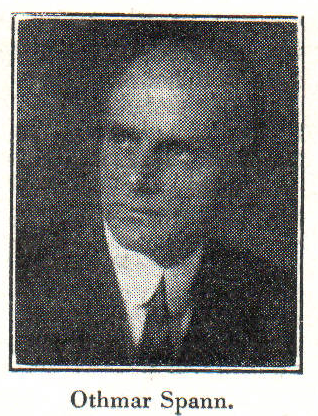
Othmar Spann was a conservative Austrian philosopher, sociologist and economist. His radical anti-liberal and anti-socialist views, based on early 19th century Romantic ideas expressed by Adam Müller et al. and popularized in his books and lecture courses, helped antagonise political factions in Austria during the interwar years.

Ignaz Seipel was an Austrian Roman Catholic priest, theologian and politician of the Christian Social Party. He was its chairman from 1921 to 1930 and served as Austria's federal chancellor twice, from 1922 to 1924 and 1926 to 1929. Seipel's terms in office saw the reorganization of the state's finances and passage of the 1929 amendment to the federal constitution that strengthened the role of the Austrian President. As chancellor he opposed the Social Democratic Party of Austria and Austromarxism and supported paramilitary militias such as the Heimwehr, an organization similar to the German Freikorps.

Otto Bauer was one of the founders and leading thinkers of the left-socialist Austromarxists who sought a middle ground between social democracy and revolutionary socialism. He was a member of the Austrian Parliament from 1907 to 1934, deputy party leader of the Social Democratic Workers' Party (SDAP) from 1918 to 1934, and Foreign Minister of the Republic of German-Austria in 1918 and 1919. In the latter position he worked unsuccessfully to bring about the unification of Austria and the Weimar Republic. His opposition to the SDAP joining coalition governments after it lost its leading position in Parliament in 1920 and his practice of advising the party to wait for the proper historical circumstances before taking action were criticized by some for facilitating Austria's move from democracy to fascism in the 1930s. When the SDAP was outlawed by Austrofascist Chancellor Kurt Schuschnigg in 1934, Bauer went into exile where he continued to work for Austrian socialism until his death.
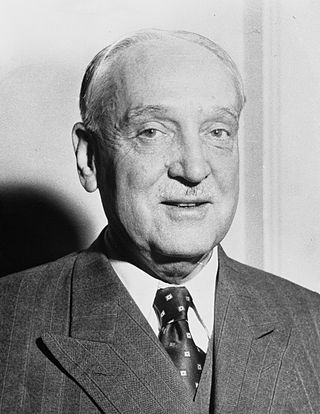
Adolf Schärf was an Austrian politician of the Socialist Party of Austria (SPÖ). He served as Vice-Chancellor from 1945 to 1957 and as President of Austria from 1957 until his death.
The Christian Social Party was a major conservative political party in the Cisleithanian crown lands of Austria-Hungary and under the First Austrian Republic, from 1891 to 1934. The party was affiliated with Austrian nationalism that sought to keep Catholic Austria out of the State of Germany founded in 1871, which it viewed as Protestant and Prussian-dominated; it identified Austrians on the basis of their predominantly Catholic religious identity as opposed to the predominantly Protestant religious identity of the Prussians.
Max Adler was an Austrian jurist, politician and social philosopher; his theories were of central importance to Austromarxism. He was a brother of Oskar Adler.
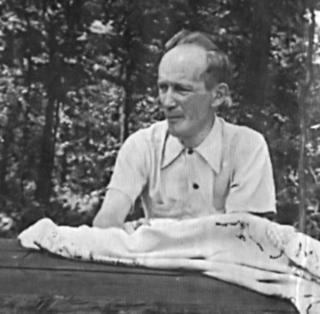
Roman Osipovich Rosdolsky was a prominent Ukrainian Marxian scholar, historian and political theorist. Rodolsky's book The Making of Marx's Capital, became a foundational text in the rediscovery of Marx critique of political economy. As well as influenced later scholars such as Moishe Postone.
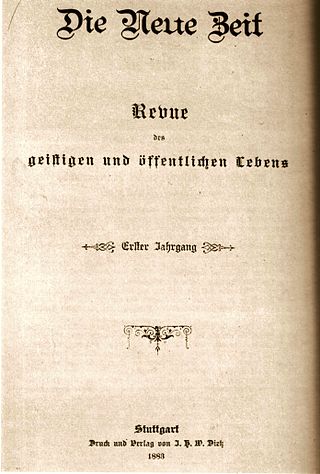
Die Neue Zeit was a German socialist theoretical journal of the Social Democratic Party of Germany (SPD) that was published from 1883 to 1923. Its headquarters was in Stuttgart, Germany.

The Republic of German-Austria was an unrecognised state that was created following World War I as an initial rump state for areas with a predominantly German-speaking and ethnic German population within what had been the Austro-Hungarian Empire, with plans for eventual unification with Germany. The territories covered an area of 118,311 km2 (45,680 sq mi), with 10.4 million inhabitants.

Neighborly relations exist between Austria and the Czech Republic, two member states of the European Union. Austria has given full support to Czech Republic's membership of the European Union. The Czech Republic is a member state of NATO, while Austria is not.
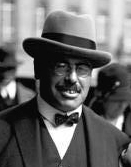
Rudolf Hilferding was an Austrian-born Marxist economist, socialist theorist, politician and the chief theoretician for the Social Democratic Party of Germany (SPD) during the Weimar Republic, being almost universally recognized as the SPD's foremost theoretician of this century. He was also a physician.

The Social Democratic Party of Austria is a social-democratic political party in Austria. Founded in 1889 as the Social Democratic Workers' Party of Austria and later known as the Socialist Party of Austria from 1945 until 1991, the party is the oldest extant political party in Austria. Along with the Austrian People's Party (ÖVP), it is one of the country's two traditional major parties. It is positioned on the centre-left on the political spectrum.

Austromarxism was a Marxist theoretical current led by Victor Adler, Otto Bauer, Karl Renner, Max Adler and Rudolf Hilferding, members of the Social Democratic Workers' Party of Austria in Austria-Hungary and the First Austrian Republic, and later supported by Austrian-born revolutionary and assassin of the Imperial Minister-President Count von Stürgkh, Friedrich Adler. It is known for its theory of nationality and nationalism, and its attempt to conciliate it with socialism in the imperial context. More generally, the Austromarxists strove to achieve a synthesis between social democracy and revolutionary socialism. Uniquely, Austromarxists posited that class consciousness in the working class could be achieved more organically through the maintenance of national autonomy, in contrast to the internationalist perspective and the notion of the party vanguard popular in orthodox Marxist circles elsewhere in Europe.
Julius Braunthal (1891–1972) was an Austrian-born historian, magazine editor, and political activist. Braunthal is best remembered as the Secretary of the Socialist International from 1951 to 1956 and for his massive three volume History of the International, first published in German between 1961 and 1971.
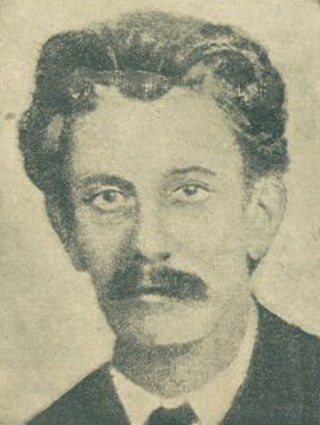
Friedrich Wolfgang "Fritz" Adler was an Austrian socialist politician, physicist, philosopher and journalist. He is perhaps best known for his assassination of Minister-President Karl von Stürgkh in 1916.
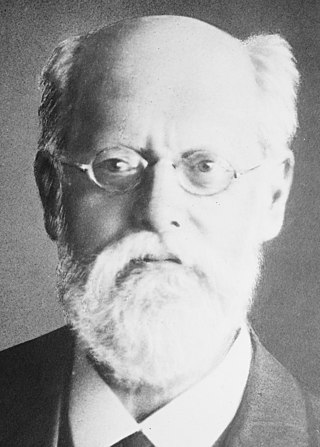
Karl Johann Kautsky was a Czech-Austrian philosopher, journalist, and Marxist theorist. A leading theorist of the Social Democratic Party of Germany (SPD) and the Second International, Kautsky advocated orthodox Marxism, which emphasized the scientific, materialist, and determinist character of Karl Marx's work. This interpretation dominated European Marxism for two decades, from the death of Friedrich Engels in 1895 to the outbreak of World War I in 1914.

Emma Adler was an Austrian fin de siècle journalist and writer.
Since its foundation in 1889, the Social Democratic Party has often been one of the main political forces in Austria. At the start of the First World War it was the strongest party in parliament, and on the ending of that war in 1918 the party leader Karl Renner became chancellor of the First Republic. The party lost power in 1920, but retained a strong base of support in the capital Vienna. A period of rising political violence culminated in the banning of the Social Democratic Party under the Austrofascist dictatorship (1934–38).
References
- 1 2 3 4 5 6 Eric C. Kollman (1970). "Book review". Austrian History Yearbook. 6: 423–425. doi:10.1017/S0067237800010729. S2CID 143791169.
- ↑ Leonardo Rapone (2010). "Bauer, Otto". In Silvio Pons; Robert Service (eds.). A Dictionary of 20th-Century Communism. Princeton, NJ: Princeton University Press. p. 45. ISBN 9781400834525.
- 1 2 Astrid von Busekist (2019). "After Empire: Karl Renner's Danubian model of pluralism". Nations and Nationalism . 25 (2): 547. doi:10.1111/nana.12464. S2CID 150161863.
- 1 2 3 Ewa Czerwińska-Schupp (2017). Otto Bauer (1881–1938). Thinker and Politician. Vol. 121. Leiden; Boston: Brill. p. 15. ISBN 978-90-04-32583-8. JSTOR 10.1163/j.ctt1w76v3b.
- ↑ Joseph Malherek (2022). Free market socialists. European émigrés who made capitalist culture in America, 1918–1968. Budapest; Vienna; New York: CEU Press. p. 22. ISBN 978-963-386-447-0.
- 1 2 3 Otto Bauer (2000). The Question of Nationalities and Social Democracy. Minneapolis, MN; London: University of Minnesota Press. p. 462. ISBN 978-0-8166-3265-7.
- ↑ Anton Holzer (16 March 2019). ""Der Kuckuck", Sprachrohr des "Roten Wien"". Wiener Zeitung . Retrieved 6 July 2023.
- ↑ Melvin Croan (November 1959). "The Politics of Marxist Sovietology: Otto Bauer's Vision". The Journal of Politics . 24 (1): 588. doi:10.2307/2126856. JSTOR 2126856. S2CID 154184860.
- ↑ Charles H. Clavey (2021). "Resiliency or Resignation: Paul F. Lazarsfeld, Austro-Marxism, and the Psychology of Unemployment, 1919–1933". Modern Intellectual History. 18 (1): 166. doi:10.1017/S1479244319000192.
- ↑ Joyce Tsai (2005). "Der Kuckuck and the problem of workers' photography in Austria". History of Photography . 29 (3): 275. doi:10.1080/03087298.2005.10442802. S2CID 154281898.
- ↑ Gerhard Botz (October 1976). "Austro-Marxist Interpretation of Fascism". Journal of Contemporary History . 11 (4): 130. doi:10.1177/002200947601100408. S2CID 161022112.